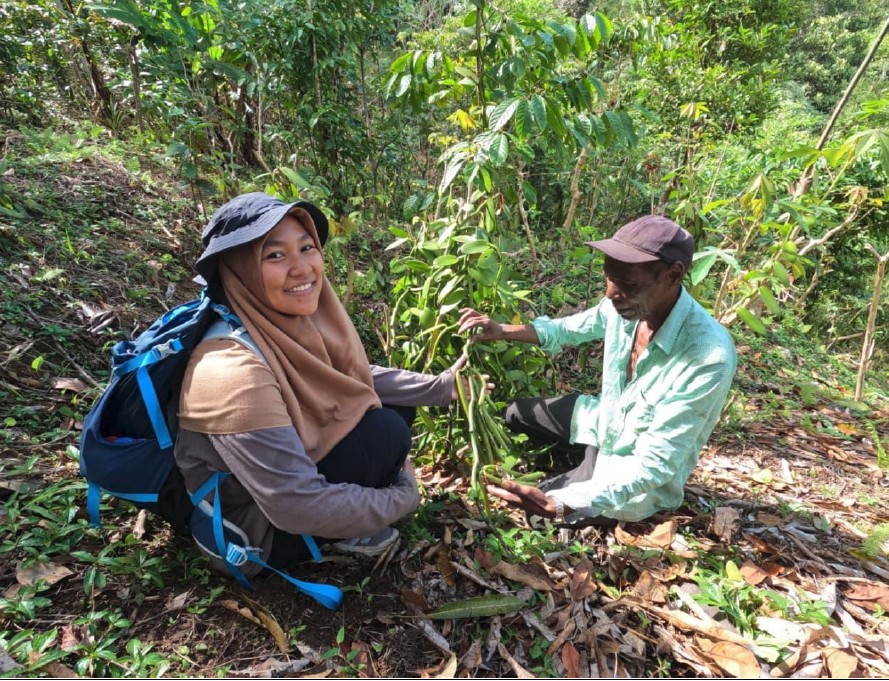Wageningen University and Research
Vanilla is one of the agroforestry commodities that are relatively tolerant of tree canopy. Unlike some other agroforestry commodities, such as coffee and cocoa, which require an open canopy, vanilla can grow under increasingly dense canopy. Research by Martin et al. (2021) states that canopy cover shade tree growth is relatively neutral to yield, thereby potentially supporting forest regeneration. However, there are still gaps in our knowledge, particularly regarding changes over time and the influence of shade tree management. This study was conducted to address these gaps and better understand how vanilla agroforestry contributes to forest restoration. The study aims to evaluate the relationship between vanilla yield, canopy cover, canopy height, planting density, and land-use history in Madagascar’s vanilla agroforestry. It will use a time-series approach and use the study by Martin et al. (2021) as the baseline. Data collection will be conducted from September to December 2025 in 10 villages in the SAVA Region in northeastern Madagascar. Parameters measured include canopy cover size, shade tree height and nativeness, agroforest size and age, planting density, and vanilla yield. Statistical analysis and comparison with relevant literature will be conducted to support subsequent reports or thesis writing.

